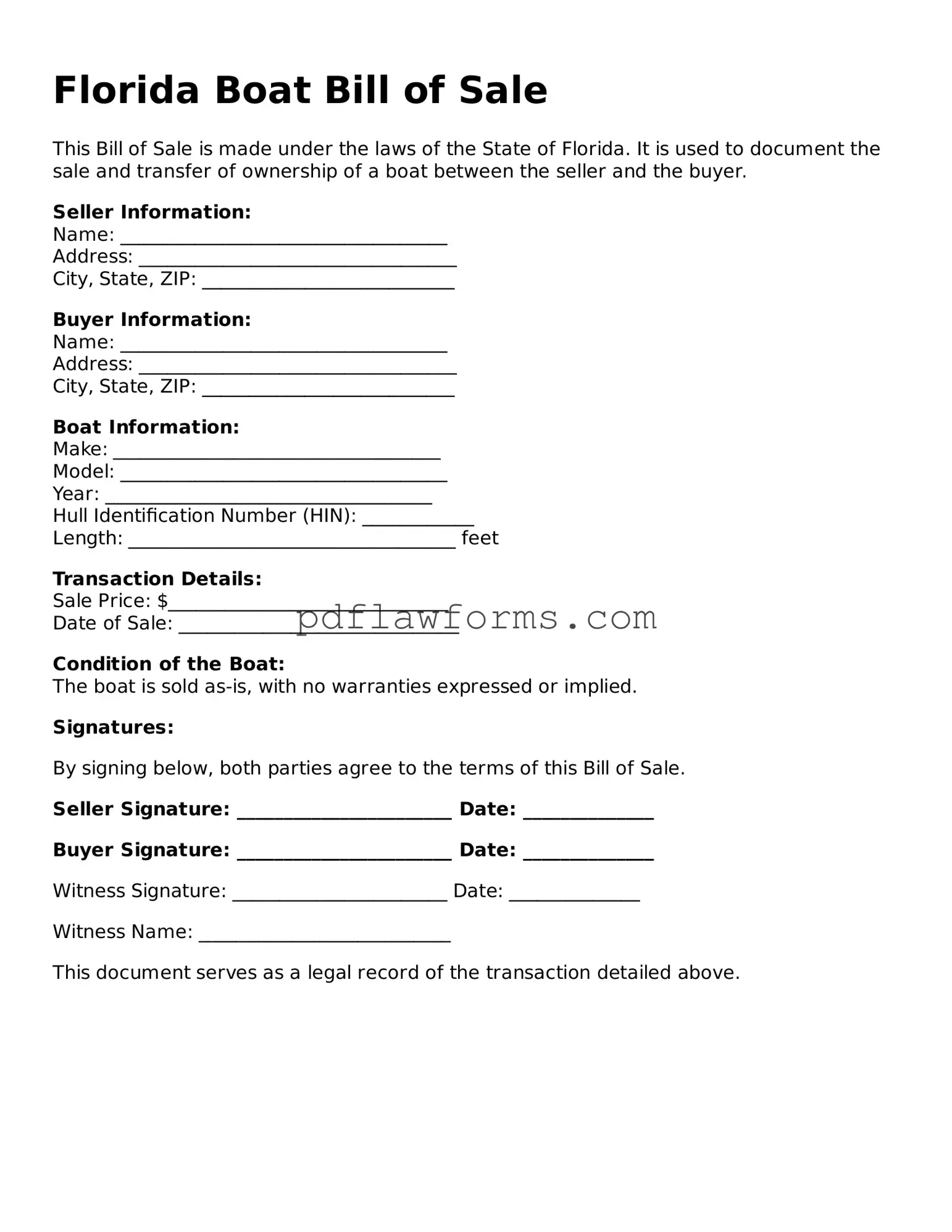Boat Bill of Sale Form for the State of Florida
The Florida Boat Bill of Sale form is a legal document that serves as proof of the transfer of ownership for a boat or watercraft in the state of Florida. This essential form outlines key details such as the buyer and seller's information, the boat's specifications, and the sale price, ensuring a smooth transaction. To facilitate your boat sale or purchase, consider filling out the form by clicking the button below.
Make My Document Online

Boat Bill of Sale Form for the State of Florida
Make My Document Online
You’re halfway through — finish the form
Edit and complete Boat Bill of Sale online, then download your file.
Make My Document Online
or
⇩ Boat Bill of Sale PDF
